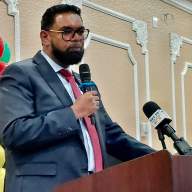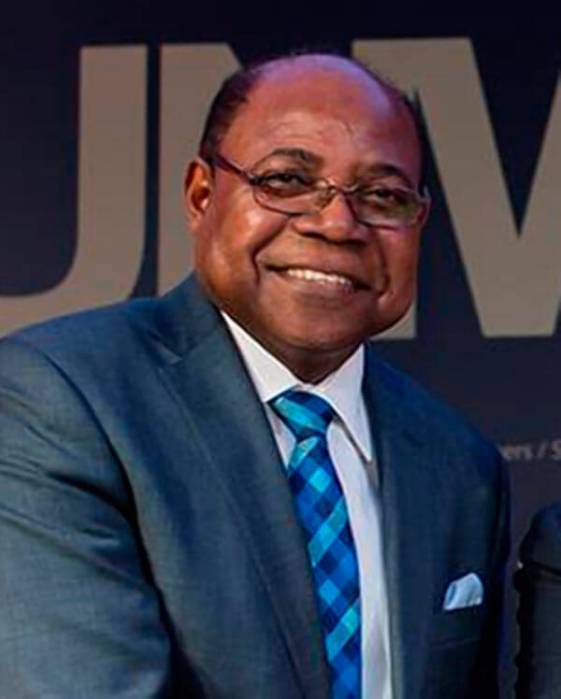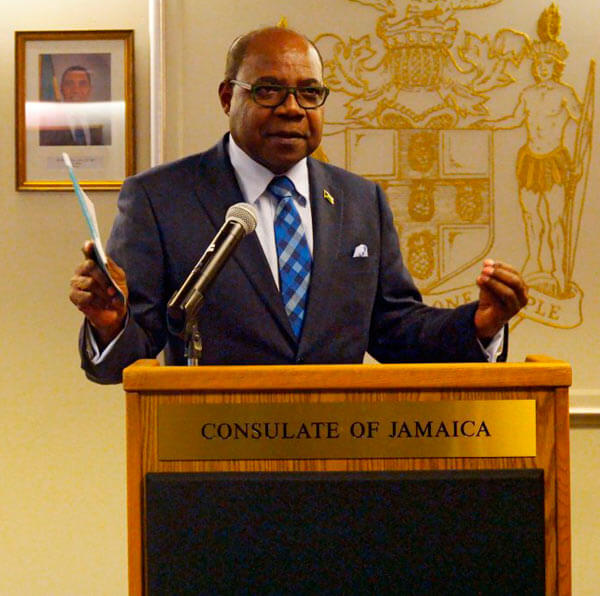Caribbean
The CARICOM and Commonwealth secretariats recently signed a new Memorandum of Understanding (MoU) to further strengthen cooperation between the two organizations.
CARICOM Secretary General Irwin La Rocque and Commonwealth Secretary General Patricia Scotland signed the MoU, which will facilitate joint implementation of programs and projects while harnessing the experience and resources of the two organizations at the Pegasus Hotel in Georgetown recently. The MoU will build on areas of interest agreed to in a memorandum signed in 1996.
The areas of cooperation will include supporting more inclusive economic growth and sustainable development; climate change, justice reform, crime and security, youth sports and gender.
Barbados
The Barbados government is seeking a US$60 million to US$70 million bailout from the private sector because of a serious foreign reserves problem.
Governor of the Central Bank Cleviston Haynes revealed that for the first time in 27 years, the bank requested the private sector to repatriate some of its overseas funds as the government faced a major foreign loan payment next month. However, he said, the private sector funds will not be enough.
Haynes was at the time delivering the first-quarter economic review during a press conference at the bank.
He said the government’s efforts to divest assets, including the Barbados National Terminal Co. Ltd. and the Hilton Barbados property, needed to proceed so that the reserve problem could be fixed.
Haynes added that the private sector funds would be sought on the understanding that “we would reciprocate in much the same way we did once the challenge is over… by allowing them to take those funds back out.”
The Central Bank governor also reported that the Barbados economy contracted in the first quarter of this year by 0.7 percent.
Cayman Islands
Cayman Islands Premier Alden Mc Laughlin said the country is not ready for independence.
He said independence requires a whole new set of skills and abilities which “we are still developing.”
McLaughlin said he wasn’t saying that Cayman should never contemplate independence, he told radio Cayman’s For the Road, program; but indicated that independence was not the only option and that the government was not going to simply lie down and let the UK do whatever it wants.
Recently the British government amended the Sanctions and Anti-Money Laundering Bill to require its overseas territories to establish public registers of the beneficial owners in their jurisdictions, has stirred up the topic of independence again.
Mc Laughlin said the plans to take the UK’s government decision in the courts, adding that his government was planning a sustained campaign because it was wrong in principle for members of the British parliament to decide on things that affect the Cayman Islands so fundamentally when most of them don’t even know where Cayman is.
He said it is a very serious matter, but whether Cayman would be forced down the road of beneficial ownership or not, the financial sector was resilient enough and would survive.
The issue, he said, was about the UK’s willingness to discriminate against and legislate for the overseas territories.
Grenada
A Grenadian politician has been charged with conspiracy to import and trafficking in marijuana after six pounds of the illegal drug was found in a barrel assigned to him recently.
Basil Williams, 34, who unsuccessfully contested a seat for the Progress Party, was among three people jointly charged with conspiracy to traffick a controlled drug. The accused men appeared in court and were remanded on bail to next month.
The marijuana, with a street valued of EC$250,000, was discovered by customs officials at the Maurice Bishop International Airport recently.
Jamaica
The Jamaica tourism sector grew by 12.1 percent in 2017, netting $62.2 billion to the local economy, according to Tourism Minister Edmund Bartlett.
Bartlett, in the 2018–2019 Sectoral Debate in the House of Representatives recently, said the sector has been expanding at a “unprecedented pace” and remains poised to outperform the growth target of 5 percent in five years, noting that for two consecutive years, tourism exceeded the 5 percent projected annual growth.
Last year 4.3 million tourists visited Jamaica, with the country making history with 500,000 new visitors to the island in a single calendar year.
Revenue in the sector grew from US$2.1 billion in 2016 to approximately US$ 3 billion in 2017, the minister said.
He said in 2017, tourism accounted for 8.9 percent of the labor force, employing 122,500 workers and generating indirect employment for another 250,000 workers.
Bartlett also noted that the sector is seeing an increase in employment.
St. Kitts
St. Kitts and Nevis Prime Minister Dr. Timothy Harris said that a second investigation has started into the Sugar Industry Diversification Foundation (SIDF) and that a successor to the foundation could be in place before the end of the year.
The SIDF was established in 2006 to assist the transition from sugar as the main economic activity after the 300-year-old industry ground to a halt in 2005.
While in opposition, the current coalition government accused the SIDF of wrongdoing and launched an investigation into the entity after it won the 2015 general election.
The findings of that investigation are not made public but the authorities announced that a second investigation would follow.
“With respect to the SIDF and the further investigations we are expecting with the next 14 days to have a report from a particular group that was conducting the further evaluation of the SIDF,” the prime minister said. “We have submitted the reports that we have had for further evaluation and scrutiny by competent persons and within the next 14 days the attorney general has promised that we will have their recommendations as to further action to be taken with respect to that.”
Trinidad
A European Union (EU) Delegation to Trinidad and Tobago does not believe the death penalty is an effective deterrent to crime.
The EU expressed concerns about Trinidad and Tobago’s high crime rate, gang and drug activity and the significant number of guns on the nation’s streets.
Several ambassadors from France, Spain, the Netherlands, Germany and the United Kingdom held a press conference at its office, in Queen’s Park West, Port of Spain, last week.
They shared their views on many issues, including human rights, trade with Trinidad and Tobago, climate change, culture and its role in the world.
Speaking on the death penalty, Tim Stew, British High Commissioner to Trinidad and Tobago, noted that Trinidad and Tobago was the only remaining Commonwealth Caribbean country to still have a mandatory death penalty.
“We don’t think it is effective. There is too much evidence to show that a mandatory death penalty is not an effective deterrent to crime,” he said.
Stew said the EU was yet to make an argument locally that would persuade it that the death penalty would make a difference to the crime situation. He added that gender-based violence was a serious concern to the EU.
— compiled by Azad Ali

























